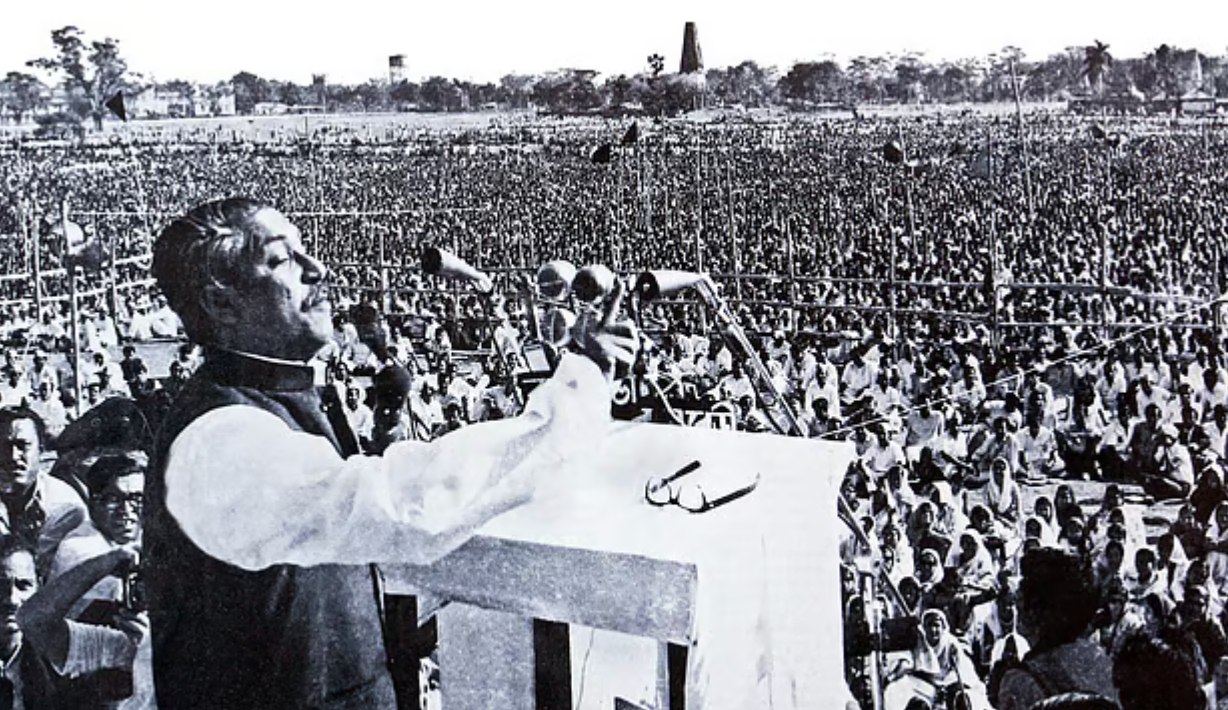Denial of the Historic Speech of Bangabandhu on March 7th: An Attempt to Prove the Truth of Bangladesh's History False
Dhaka | Bangladesh, March 7, 2025
On March 7, 1971, when Bangabandhu Sheikh Mujibur Rahman delivered his greatest speech at the Racecourse Ground in Dhaka, despite the threats from the Pakistani military's warplanes, cannons, and machine guns, he declared – "This struggle is our struggle for freedom, this struggle is the struggle for independence." Through this historic speech, Bangabandhu called on the Bengali nation to prepare for the liberation war. The speech was not just a speech; it became a commitment to independence.
UNESCO has included the historic speech of March 7 in the ‘Memory of the World International Register,’ which globally acknowledges that it was a declaration of Bangladesh's independence. During the speech, Bangabandhu raised the slogan "Joy Bangla," which became a symbol of the sacrifice of millions of freedom fighters in the liberation war of 1971. Later, through this slogan, the Bengali nation achieved independence, which came at the cost of a sea of blood.
However, certain quarters are now attempting to undermine the significance of the March 7 speech. Recently, the interim government removed March 7 from the list of national holidays. This decision has been criticized by many as an "attempt to conceal the truth of history." This is because Bangabandhu Sheikh Mujibur Rahman's speech was an inseparable part of the preparation for the liberation war and the declaration of Bangladesh's independence.
Former Professor of Dhaka University, Dr. Nurur Rahman Khan, has expressed his displeasure over this. He said, "Bangladesh's independence was achieved at the cost of a sea of blood, but today, through attempts to cancel the March 7 speech and the National Mourning Day on August 15, history is being erased." He further stated, "To deny Bangabandhu’s contribution means to deny the established truth of history—it is equivalent to falsehood."
UNESCO has clearly stated on its website that Bangabandhu’s speech on March 7 effectively declared Bangladesh's independence, and it is a world-class historical document.
Analysts believe that denying the historic speech of March 7 by Bangabandhu is an attempt to prove the truth of Bangladesh's history false. Rather than creating controversy over Bangabandhu's March 7 speech, attention should be given to necessary reforms and fair elections in the country. Denying the established truth of history will not bring any benefit. Instead, the right path should be followed for national unity and the development of the country.
Meanwhile, various political and social organizations have raised demands to recognize the March 7 speech as an invaluable heritage of the nation. They say that the March 7 speech highlighted the strength of Bangabandhu Sheikh Mujibur Rahman’s leadership and marked the beginning of the Bengali nation’s struggle for liberation.
It is clear that preserving the truth of history and honoring Bangabandhu's contribution is extremely important for the nation. ✍️ Report Prepared By: Fozla Rabbi Robna










